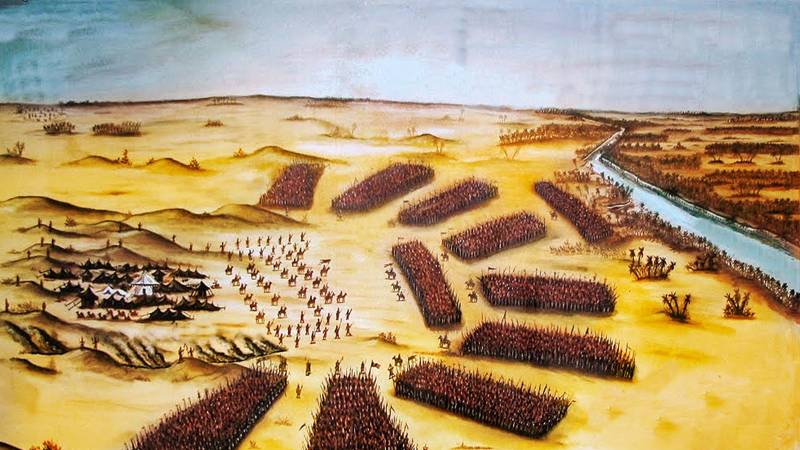
This Salam, a panegyric and form of Urdu poetry written in praise and respect of our Prophet (SAW) as well as Hussain (AS), his family and companions at Karbala, was written by Syed Aal e Raza, a notable Urdu poet of Marsiyas, Salaams, Ghazals and Quatrains (Qataa, Rubayi).
Born in 1896 in Unnao, UP, in pre-partition India, and a lawyer by profession, he started his literary pursuits by writing ghazals, and has two widely read collections to his credit; Nawai-e-Raza and Ghazl-e-Mualla. Migrating to Pakistan in 1948, Syed Aal-e-Raza became a leading exponent of the marsiya writing genre. However, his ever-lasting legacy will be his Salaam – ie Salaam-e-Akhir, written as a homage and tribute to Hussain (AS), his family and companions who were slain or taken prisoners In Karbala (present day Iraq) some 1,344 years ago.
The reading of the Salaam, originally and so evocatively rendered by Syed Nasir Jehan sb, (and now his son Syed Asad Jehan) after the Sham-e-Ghariban majlis - held at sunset on the 10th of Muharram, has become a tradition that is followed every year, everywhere in the world where the martyrdom of Hussain (AS) is remembered.
Here is the Salaam with English translation:
- Salaam khaak-nasheenon pa soagwaaron ka
Ghareeb dete hain pursa tumhaare pyaron ka
(Salaam to those whose bodies are strewn on the soil (of Karbala)
We your mourners, offer our condolences to you and your loved ones)
- Salaam un pe jinhen sharm khaaye jaati hai
Khule saron pe aseeri ki khaak aati hai
(Salam to those who’s dignity has been compromised, their immodesty (forced) eating them up
Whose uncovered heads are exposed to the dust/hardship of captivity)
- Salaam us pe jo zahmat kashe salaasil hai
Musibaton mein Imaamat ki pehli manzil hai
(Salaam to the one (Zain Al Abidin AS) burdened by chains
Tribulations and hardships are but a steppingstone to Imamate/leadership)
- Salaam bhaijte hain apni shahzadi par
Ke jisko sawnp gaye marte waqt ghar sarwar
(We send our salaams to our Princess Hazrat (Zainab SA)
To whom on his matrydom, the leader (Hussain AS) on his, entrusted the house/progeny of the Prophet (SAW))
- Musaafirat ne jise bebasi ye dikhlaayi
Nisaar kar diye bacche na bach saka bhai
(Her (Zainab SA) journey (to Shaam/Syria) was one of helplessness
Her children sacrificed; her brother not spared)
- Aseer ho ke jise Shaamiyon ke narghay mein
Hussainiyat hai sikhaana Ali ke lehjay mein
(Who while being a prisoner, and surrounded by the Shaamis (Syrians)
Taught them Husainiyat in the manner of Ali (AS))
- Sakina bibi tumhaare ghulaam haazir hain
Bujhe jo pyaas to ashkon ke jaam haazir hain
(Sakina (SA) bibi, your followers are here for you
If they quench can your thirst, our tears are here for you)
- Yeh sin, ye hashr, yeh sadmay naye naye bibi
Kahaan pe baithi ho khaimay to jal gaye bibi
(At this young an age, this doom, these tragedies one after the other
Wonder where are you sitting (Sakina (SA) bibi), the tents have been burnt, ravaged bibi?)
- Pahaar raat bari der hai sawairay mein
Kahaan ho shaam-e-ghareeban ke ghup andhairay mein
(The night so dark n heavy, and daybreak sometime away
Where are you (Sakina bibi) in the pitch darkness and the gloom of the eve of the homeless, the exiled and among strangers)
- Zameen garm, yateemi ki sakhtiyan bibi
Woh seena jis pa ke soti theen ab kahan bibi
(The hot ground (where you are sleeping), and then the challenges of orphanhood
The chest (Hussain AS) on which you rested your head to sleep, no more)
- Janaab-e-maadar-e-baysheer ko bhi sab ka salaam
Ajeeb waqt hai kya dein tasalliyon ka payaam
(Salaam also to the mother (Rubab SA) of the helpless infant (Ali Asghar AS)
At times like this, would any words, message of hope and solace mean anything)
- Abhi kalaijay may aik aag si lagi hogi
Abhi to godh ki garmi na kam hui hogi
(You (Rubab SA) must be riddled with such anguish
The warmth of the infant (Ali Asghar AS) in your lap would not have lessened)
- Nahin andhairay mein kuch soojhta kidhar dhoondhain?
Tumhaara chaand kahaan chup gayaa kidhar dhoondainn
(Can’t see in this darkness, where should we look for him
Where is the light of your life hidden (Ali Asghar AS)), O’ where should we look for him)
- Na is tarah koi khaiti hari bhari ujri
Tumhaari maang bhi ujri hai gaudh bhi ujri
(Never has a green pasture ( Hussain’s (AS) family) been uprooted like this
Losing your partner, your cradle snatched as well)
- Nahi layeeno mein insaan koi khuda hafiz
Darinde aur be-waarisi khuda hafiz
(There isn’t an iota of humanity among the enemy and the aggressors, may Allah protect you
Among these animals and helplessness, may Allah protect you)
- Shareek-e-haq darood-o-salaam-e-Payghambar
Salaam sayyid-e-lawlaak ke lutay ghar par
(Those who are participants in the praise and Salaam of the Prophet (SAW)
Respect to the looted family of the Prophet)
- Salaam mohsin-e-Islam khasta tan laashon
Salaam tum pe shaeedon ke be-kafan laasho
(Respect to the wound inflicted corpses of the friends and benefactors of Islam
Salaam to you the coffin less corpses of the martyrs)
- Salaam tum pe rasool-o-batool ke pyaro
Salaam mehr-e-shahaadat ke gird sayyaaron
(Salaam to you, loved by The Prophet and Bibi Fatima (SA)
Salaam to the stars circling the halo of martyrdom)
- Bachay to aglay baras hum hain aur yeh gham phir hai
Jo chal basay, toh ye apnaa salaam-e-aakhir hai
(If I live to see another year, then it’s me/us and this wound, grief to mourn again
If I/we pass on, then let this be our last Salaam)
(Syed Aal-e-Raza)
Note: The Salaam’s English translation, a mix of literal and figurative/metaphorical phrases, has been done by Syed Abbas Masud, grandson (nawasa) of the poet.

